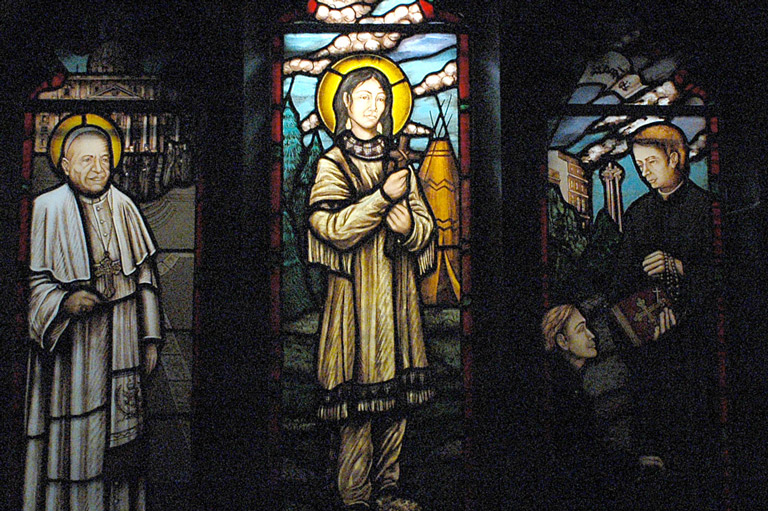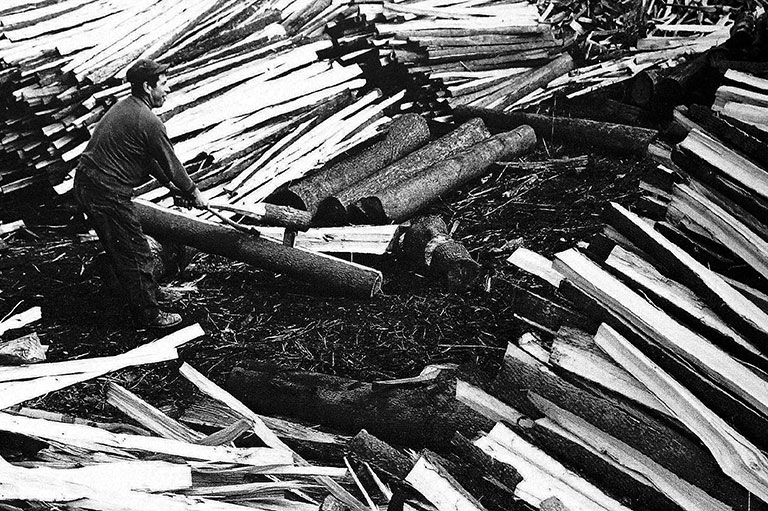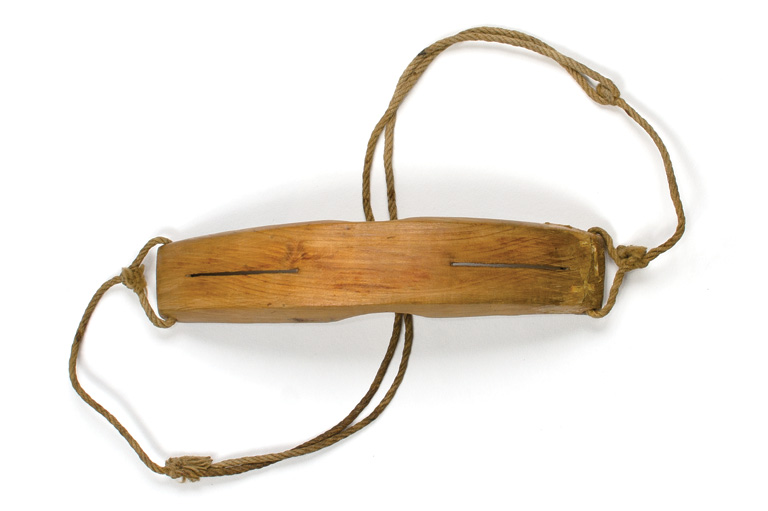Tours of the Shingwauk and Wawanosh Residential Schools Site
-
 Photograph of boys during a fire drill at the Shingwauk Home, 1877.Shingwauk Residential Schools Centre
Photograph of boys during a fire drill at the Shingwauk Home, 1877.Shingwauk Residential Schools Centre -
 Aerial view of the New and Old Shingwauk Homes, 1935.Shingwauk Residential Schools Centre
Aerial view of the New and Old Shingwauk Homes, 1935.Shingwauk Residential Schools Centre -
 Students on the front steps of the Shingwauk School, 1955.Shingwauk Residential Schools Centre
Students on the front steps of the Shingwauk School, 1955.Shingwauk Residential Schools Centre -
 Bishop Fauquier Memorial Chapel, 2015. The Chapel was built almost entirely by the student of the Shingwauk Residential School.Shingwauk Residential Schools Centre
Bishop Fauquier Memorial Chapel, 2015. The Chapel was built almost entirely by the student of the Shingwauk Residential School.Shingwauk Residential Schools Centre -
 Historic Site tour on the front lawn of Algoma University.Shingwauk Residential Schools Centre
Historic Site tour on the front lawn of Algoma University.Shingwauk Residential Schools Centre -
 Front lawn and Shingwauk Hall building of Algoma University.Shingwauk Residential Schools Centre
Front lawn and Shingwauk Hall building of Algoma University.Shingwauk Residential Schools Centre
However, if you take more than a casual glance at Algoma University reminders of the residential school era permeate through the entire campus. The main university building, known as Shingwauk Hall, served as the Shingwauk Residential School from 1935 to 1970. The Bishop Fauquier Memorial Chapel on the front lawn of the university was built by Shingwauk students in 1883. The Shingwauk Cemetery is located on site, and numerous monuments to the Shingwauk School dot the grounds.
Even with these visual reminders there is still a need to educate the internal university community, local Sault Ste. Marie residents, and visitors to the site about the history of the Shingwauk School. As part of this education effort, the Shingwauk Residential Schools Centre (SRSC) provides historical walking tours.
An informal version of these tours began in the 1980s. They were initially run by volunteers and were often provided to residential school survivors and their descendants who wanted to walk through the building they once resided in. Tours were also used to introduce students and visitors to the history of the Shingwauk Indian Residential School.
Since the mid-2000s, the tour process has substantially expanded. Every year the SRSC now provides over seventy site tours to students of all education levels, local professional groups, drop-in visitors, the general public, and Indigenous community members.
In some cases, these tours are the first time people are exposed to the history of residential schools. In other cases, the tours are deeply personal. By necessity, the walking tours vary greatly depending on the participants. Age-appropriate content is used for school-aged children, while discussions of historical trauma and the present-day impacts of colonialism are included in post-secondary tours. In tours with survivors and descendants, SRSC staff often ask the individuals what they are interested in seeing, and provide a more informal discussion-based tour.
SRSC staff have worked closely with survivors to learn about the site’s history from people who actually attended the School. During tours, survivor experiences are interspersed with history gathered from archival records. As discussions of reconciliation occur across Canada, the Shingwauk site has the potential to bring to life this important part of Canadian history, and serve as a potent window into the past. Very few residential school buildings still stand today, making walking tours of the Shingwauk site increasingly important as an experiential learning tool.
Themes associated with this article
Advertisement




